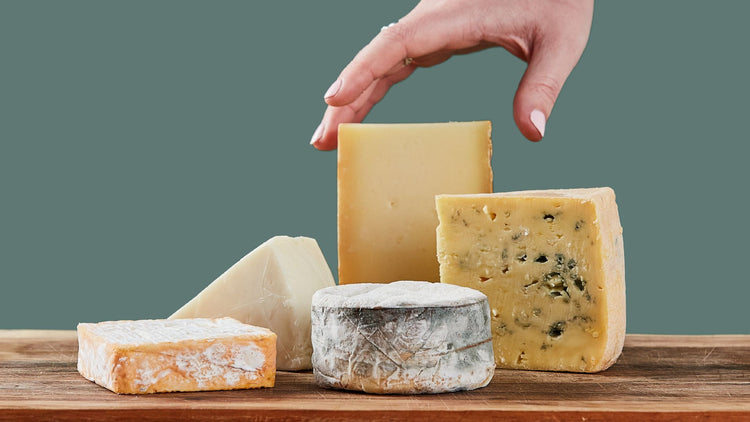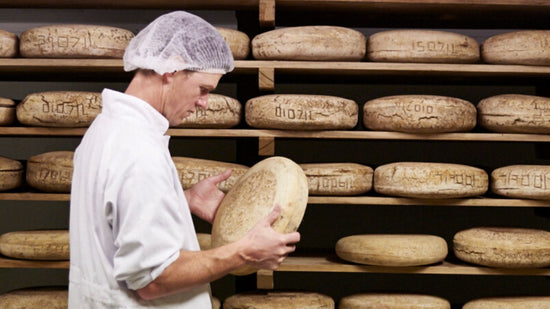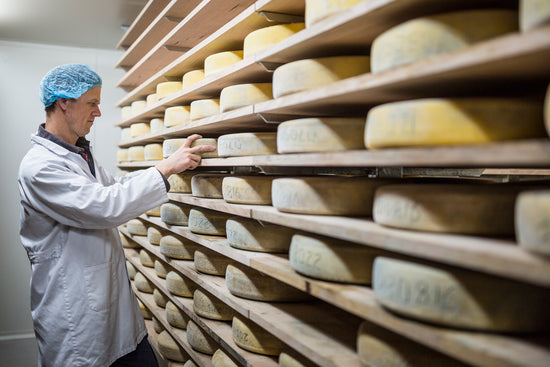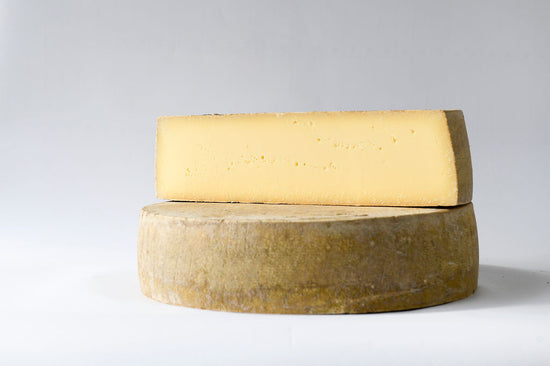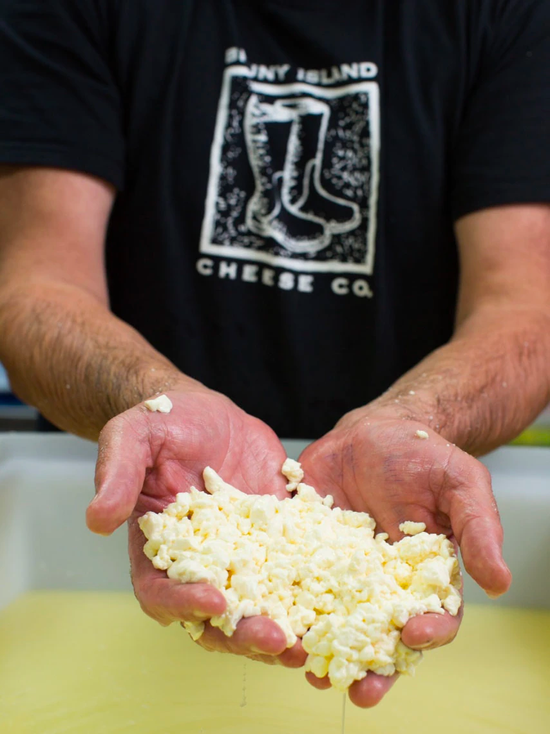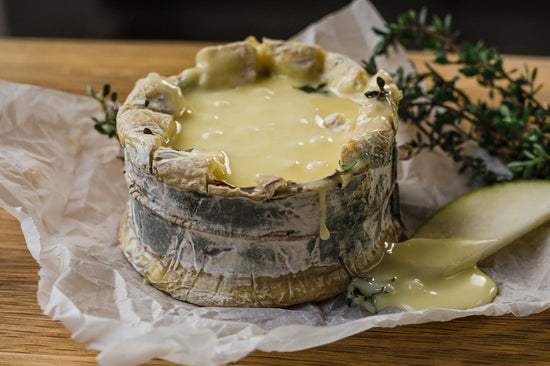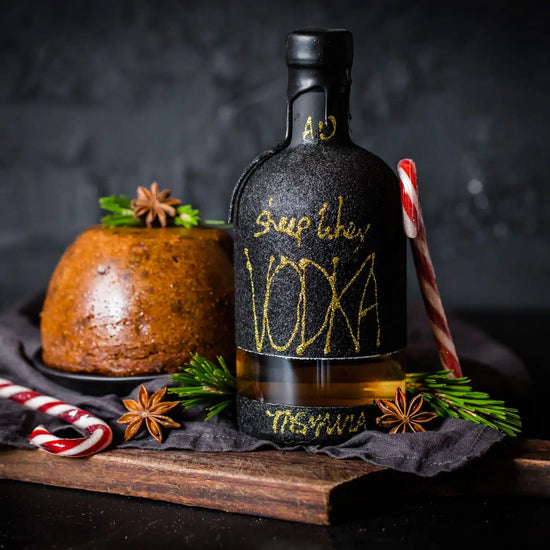
What’s in a name? Old world versus new and the evolution of cheese names. about your brand
While Australian cheesemakers may soon be banned from using labels such as ‘brie’, ‘raclette’ and ‘feta’ under a major new EU deal, it kinda makes us wonder: do we really need those names anyway? Here, we speak to three local cheese producers relying on storytelling and place – rather than old-world tradition – to define their creations.
Chamela, Night Walker, Driftwood, The Curfew… No, they’re not titles of hot new indie record releases, they’re the names of some of our favourite artisan Australian cheeses.
Unbound by the rigorous naming constraints of the old world and the inferiority complex of previous generations, today’s local cheesemakers are taking the opportunity to weave a new, more meaningful narrative into their product – and we like where it’s going.
While bigger commercial players may still choose to rely on European naming conventions (for now), others are embracing a more poetic approach; venturing beyond historical norms to offer a new definition of Australian cheese while – importantly – still honouring the hands-on traditions that make European cheesemaking so undeniably great.
For Jack Holman from Stone and Crow Cheese Company in Victoria’s Yarra Valley, there’s great value in both approaches. “I’ve worked in Europe, so it’s fantastic to see those particular cheese regions and names being protected [by the EU’s proposed geographical indication rules],” he explains, adding, “It’s a very rich history that should be protected.”
Having spent his formative career with an intergenerational family of cheesemakers in the south of France, and later working for a large-scale producer here in Australia, Holman says he now enjoys the freedom of being able to do things his own way. “Being a cheesemaker in the new world where you’re not bound by those traditions is pretty exciting,” he says, “It’s nice to be able to express yourself freely and just run with an idea rather than having to navigate systems and seek permission to explore new things.”
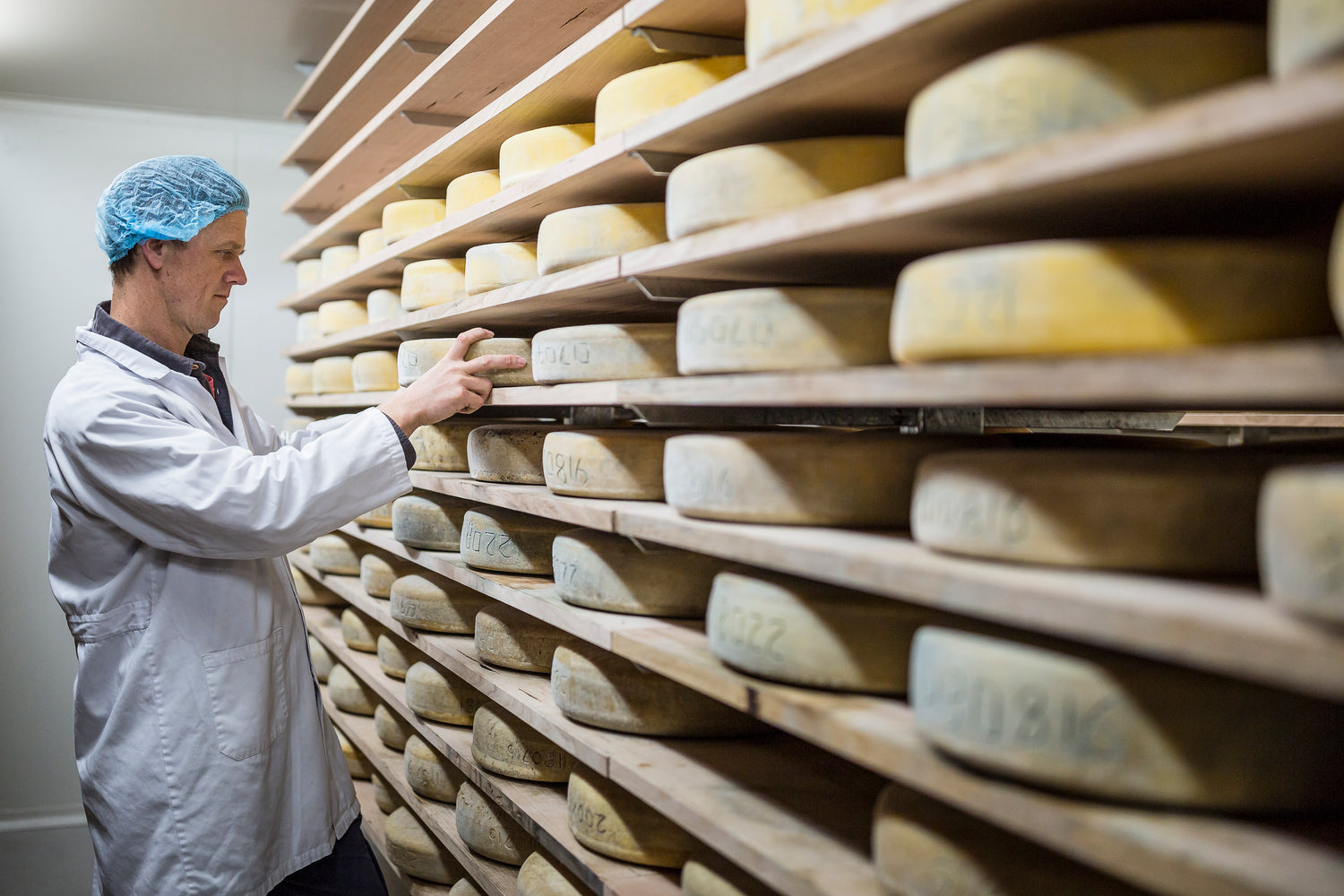
It's fair to say Jack is doing a decent job of carving out a distinctive identity for his cheeses, and with names like Moonshine, Galactic, and Night Walker all in the mix, what's also clear is that Jack has a great knack for storytelling. Moonshine, Jack’s first-ever creation for Stone and Crow, was named after the moonlight that lit his way through the dairy window as he prepped a milk vat in the wee small hours. Galactic, a petite, 40-gram surface-ripened lactic ‘geo’ cheese, is a clear play on words and size (“It's like a little star in the galaxy,” he says). Night Walker, a cow’s milk washed rind, was christened as such after he whipped one out as a snack on a regular overnight bushwalk he does with some mates.
Makers taking the traditional route, however, are now facing an identity crisis, thanks to the complications of a new free trade deal being proposed by the European Union. Much like what has happened in the wine world over the past decade or so, the EU’s latest geographical indication (GI) rules would see strict changes imposed on the naming of certain cheeses outside of their cultural birthplace. Just as non-French Champagne became ‘sparkling wine’, Australian-made feta may soon become ‘pheta’.
GIs are essentially designed to protect the unique intellectual property of a product, based on its place of origin. Champagne from France’s Champagne region, Parma ham from Parma, Scotch Whisky – you get the gist. With profound cultural meaning, hundreds of years of inherited knowledge and a stellar international reputation all tied to these product names, it’s no surprise that the Europeans are more than a little protective of their vinous and culinary icons.
But for many Australian cheese producers, the proposed rules aren’t news or even a threat. Conversations around GI rules have been doing the rounds for years. If anything, the proposed shift is just further encouragement for local makers to keep doing what they’re already doing, which is to define an identity for Australian cheese that more accurately celebrates the character and individuality of our local product.
Whenever we speak to producers about the topic there’s a general feeling that the local industry is growing up, graduating, maturing even. Gone are the days when Australian cheesemakers would slavishly piggyback ‘superior’ old-world names and styles; today’s independent makers have the confidence and expertise to create their own iconic cheeses.
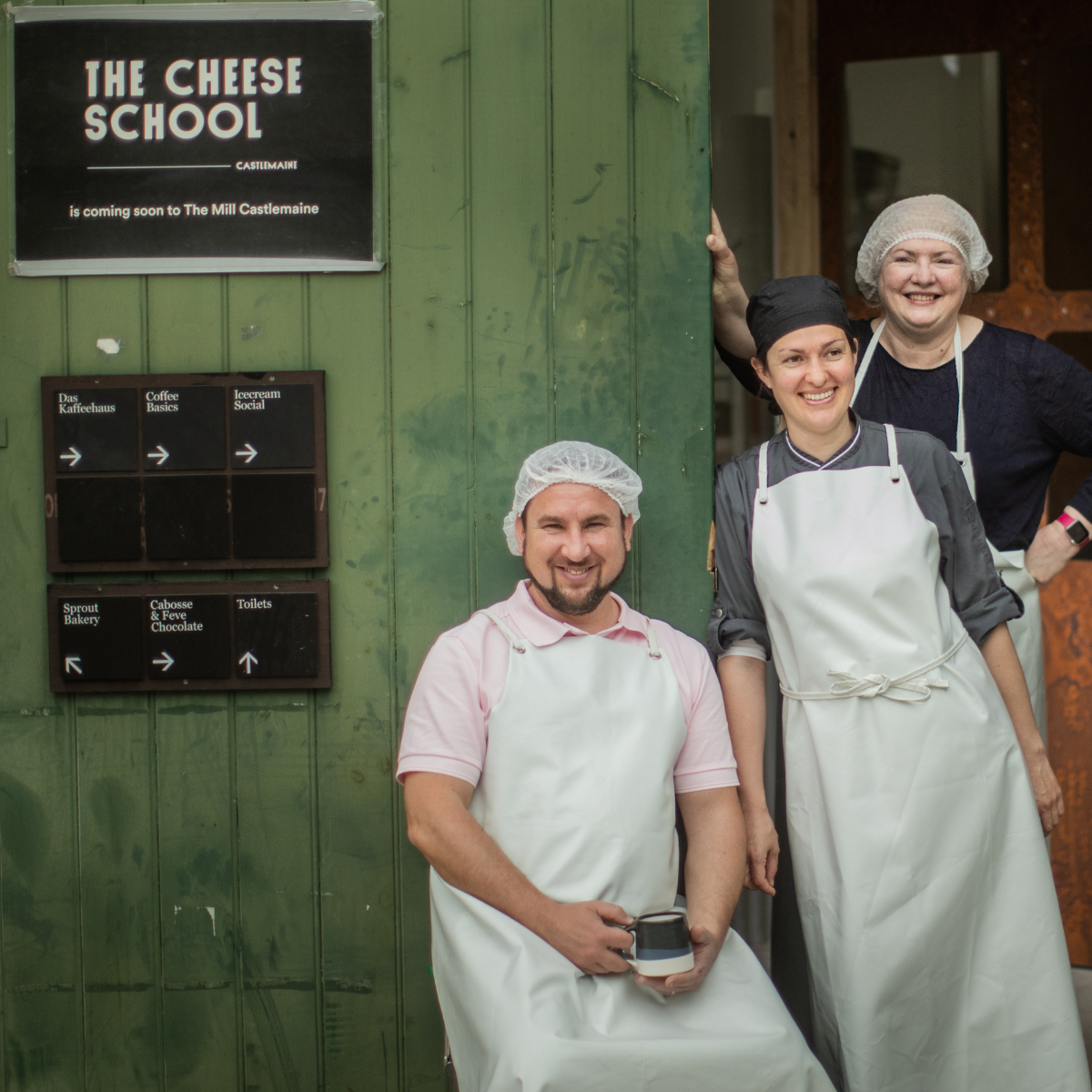
Alison Lansley, managing director of Long Paddock Cheese and The Cheese School in central Victoria’s Castlemaine as well as secretary of the Australian Specialist Cheesemakers' Association (ASCA), is a long-time advocate for the local artisan cheese industry and – admirably – does not mince words on the matter. “I have been trying to persuade other cheesemakers to ditch the European cheese names for years now,” Alison explains. “Europe has the traditions and the long history, but like any other craft-based industry we can – and should – stand on our own two feet.”
When asked about the impact that the EU’s proposed GI rules might have on the local industry, Alison says the changes would be no great surprise and should be welcomed. “We’ve been through all this with the wine industry, now we’re doing it with food,” she says. “It’s time for Australian specialty cheese to establish its own identity. It should be less about doing it because we have to,” she explains, “We should do it because we can.”
At Long Paddock Cheese, French ex-pat cheesemakers Julie and Ivan Larcher produce a range of award-winning organic cow’s milk cheeses and fresh dairy products following old-school French techniques, but when it comes to labelling, there’s not a whiff of French naming to be seen. Instead, Alison explains, names pay respect to the geology and native flora of the surrounding region, with ‘Silver Wattle’ (a soft, spreadable lactic cheese), ‘Ironbark’ (a semi-hard Alpine-style cheese) and ‘Bluestone’ (a semi-soft blue) all featuring.
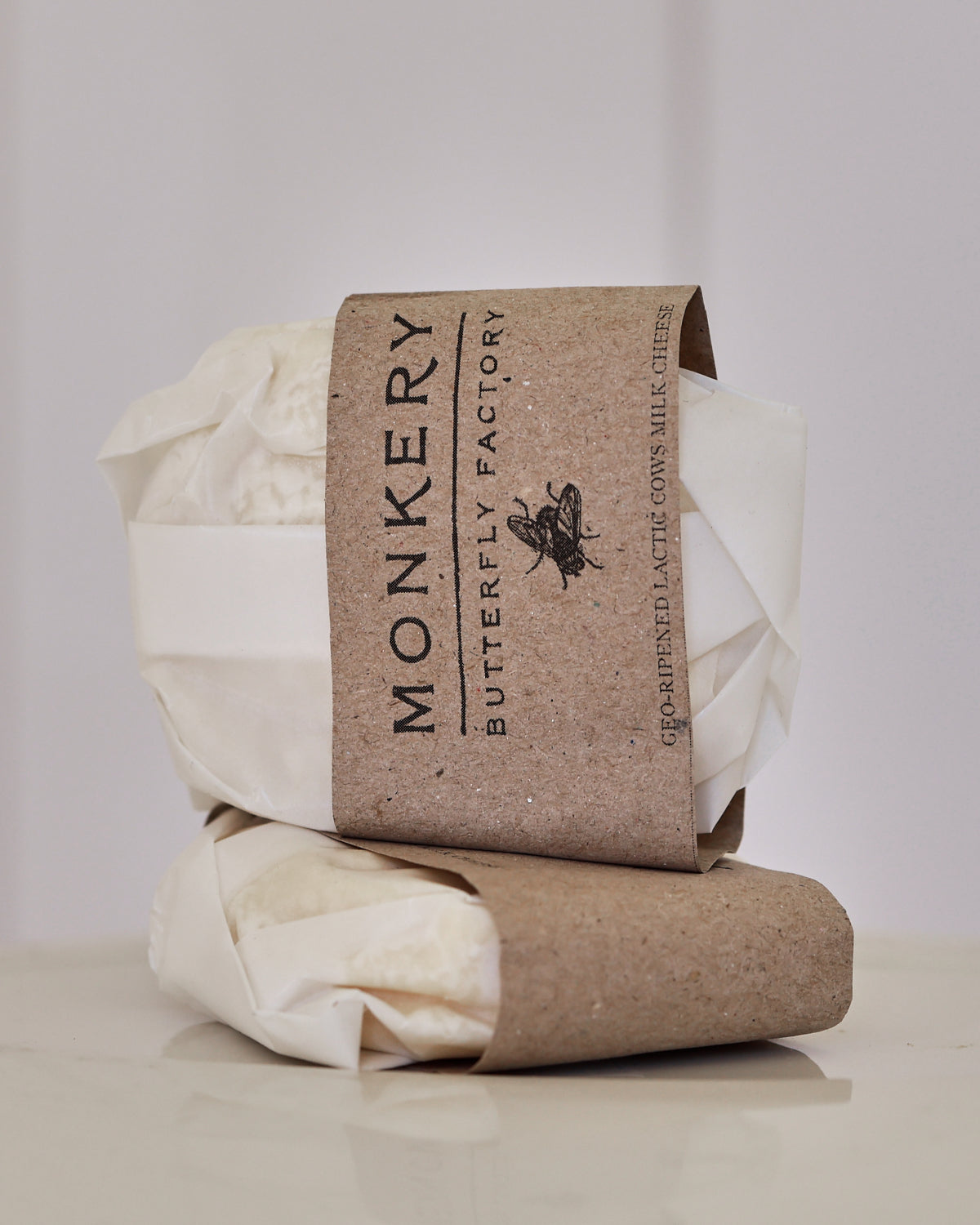
In Victoria’s bucolic West Gippsland, Butterfly Factory cheesemaker Rachel Needoba draws inspiration from both place and the characters that she meets on her journey. Another local cheesemaker with early career roots in southern France, Rachel holds great reverence for the time-honoured ways of European cheesemaking but equally appreciates the contemplative creativity afforded to makers here in Australia.
“The sense of place in cheese is fundamental,” Rachel explains. “In France, a cheese will always be named after the place or the village that it came from; that has meaning.” Here in Australia though, cheesemakers can find meaning through less prescribed sources.
Butterfly Factory’s Chamela, a soft fresh cow’s milk cheese, was named in homage to a much-loved German cheesemaker named Mela who once worked with Rachel, and for its versatile, chameleon-like qualities. Rachel’s geo-ripened lactic cow’s milk cheese called Monkery, meanwhile, pays tribute to now-retired Poowong East dairy farmer and so-called “cheeky bugger” Rob Monk.
“Rob was the sole supplier of our milk from the very beginning,” Rachel explains, “and because of that we formed a very close, important relationship.” She says that the breed of dairy farmers who work exclusively with cheesemakers in this way put extraordinary care and effort into their animals and their farming methods, often taking risks and straying from the conventional path by working with low-yield cows and doing things differently.
“As a cheesemaker, it’s important that the farmer is on board [with what you are trying to achieve],” Rachel says. This commitment is something she feels is important to acknowledge. “Rob is a dear friend now, one of the finest people I know. It was the least I could do, name a cheese after him.”
There’s something uniquely Australian and undeniably poignant about turning old rules on their head to find meaning through the land and its people. Rachel agrees: “No matter where in the world you are making cheese, having a connection to a time and place is important – and that is a story that should be shared.”

